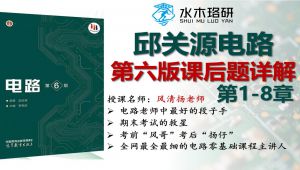- 《Great Scientists》-单词1
- 《Great Scientists》-单词2
- 《Great Scientists》-单词3
- 《Great Scientists》-课文翻译(reading)1
- 《Great Scientists》-课文翻译(reading)2
- 《Great Scientists》-课文翻译(reading)3
- 《Great Scientists》-课文翻译(reading)4
- 《Great Scientists》-课文翻译(reading)5
- 《Great Scientists》-课文翻译(reading)6
- 《Great Scientists》-课文翻译(reading)7
- 《Great Scientists》-课文翻译(Using language)1
- 《Great Scientists》-课文翻译(Using language)2
- 《Great Scientists》-课文翻译(Using language)3
- 《Great Scientists》-课文翻译(Using language)4
- 《Great Scientists》-课文翻译(Using language)5
- 《The United Kingdom》-单词1
- 《The United Kingdom》-单词2
- 《The United Kingdom》-单词3
- 《The United Kingdom》-课文翻译(reading)1
- 《The United Kingdom》-课文翻译(reading)2
- 《The United Kingdom》-课文翻译(reading)3
- 《The United Kingdom》-课文翻译(reading)4
- 《The United Kingdom》-课文翻译(reading)5
- 《The United Kingdom》-课文翻译(reading)6
- 《The United Kingdom》-课文翻译(Using language)1
- 《The United Kingdom》-课文翻译(Using language)2
- 《The United Kingdom》-课文翻译(Using language)3
- 《The United Kingdom》-课文翻译(Using language)4
- 《The United Kingdom》-课文翻译(Using language)5
- 《Life in the future》-单词1
- 《Life in the future》-单词2
- 《Life in the future》-单词3
- 《Life in the future》-课文翻译(reading)1
- 《Life in the future》-课文翻译(reading)2
- 《Life in the future》-课文翻译(reading)3
- 《Life in the future》-课文翻译(reading)4
- 《Life in the future》-课文翻译(reading)5
- 《Life in the future》-课文翻译(reading)6
- 《Life in the future》-课文翻译(Using language)1
- 《Life in the future》-课文翻译(Using language)2
- 《Life in the future》-课文翻译(Using language)3
- 《Life in the future》-课文翻译(Using language)4
- 《Life in the future》-课文翻译(Using language)5
- 《Making the news》-单词1
- 《Making the news》-单词2
- 《Making the news》-单词3
- 《Making the news》-课文翻译(reading)1
- 《Making the news》-课文翻译(reading)2
- 《Making the news》-课文翻译(reading)3
- 《Making the news》-课文翻译(reading)4
概念引入
省略的使用主要在于避免重复,可以使语言简洁、紧凑、重点突出、表达有力。省略的
原则是不损害结构或引起歧义。所以我们要认真学习有关“省略”的常见规则,以便正确应
用英语,另卜,考查省略的题在高考题中也经常出现.
我们先看看这些句子:
1.If(it is)possible,discuss what kind of first aid you should give in these situations.
2.Often the illness or injury is not serious,but there are other times when(the illness or injury is serious and)giving first aid cquickly can save lives.
3.These affect both the top(layer of the skin)and the second layer of the skin.4.Bums are called first(degree bums),second(degree bums)or third degree burns,depending on which layers of the skin are burned.
5.He wanted to help the accident victim but his friend ditant to help the accident victim).
6.To her teachis surprise,she did better in her first aid exam than(she was)expectedto do).
括号内为省略部分,把省略部分遮住,再次观察句子,思考:
是不是什么都能省略呢?究竟可以省略那些司句呢?省略有什么规吗?
用法讲解
功能词的省略:
1.冠词的省略
1)两个并列名词都有同一冠词,第二个名词的冠词常可省略。
Is the baby a boy or(a)g这个婴儿是男还是女孩?
Both the old and(the)young will enjoy the TV series.
老年人和年轻人都会喜欢这电视连续剧。
2)家庭成员前可以省略其前的词或代司等,把该词大写即可。
Dad never scolds me but Mom do爸爸从不责骂我,而妈妈却不同。
3)表示独一无二的职位,而不是这个职业所具体指的那个人时,常省略冠词。
Henry,head of our team,was determined to give up this game.
我们的队长享利决定放弃这场比赛。
但是:如果省略了第二个冠词后会误认为一人或一物时,就不可省略。
They are the gardener and the gatekeep他们一个是园丁,一个是门卫。
对比:the gardener and gatekeepe园丁兼门卫
2.介词的省略
1)表示一段时间的名词短语中for多省略,但是否定句中或句首不省略。
I've studied English(for)five yea我已学五年英语了。
For a wihole year,I was helping my dad on the 整我都在农场帮我爸爸。
2)of 在与age,size,colour,height,shap等名词连用时,常可省略。
The two pairs of shoes are(of)the same 逸鞋号码一样大。
3)near to,opposite to,in…way in.…style,at about..dclock等中的介词可省略。
I live near(to)the supermarket jmutalling about.我住在你们说的那家超市附近。
Will you sit opposite(to)me and have a friendly talk?
你们能坐在我对面友好地谈吗?
4)在-ing前的介词可省略。
have difficulty/trouble(in)doing st做某事有困难spend/waste/pass..(in/on)doing st范浪费度过…….做某事stop/prevent..(from)doing st阻止….做某事end up..(by)doing stl做.……结束
What's the good(of)doing 做.….有什么好处?
have a good/pleasant hard time(in)doing ih……过得愉快艰难5)以any,each,every;next,last,some,this,that,等拜头的表示时间的名词短语中,常省略介词。
You may come here any da你哪天来都行。
不定式中的省略
1.省略句子中与前面重复的动词原形,只保留不定式符号o:
1)助动词或情态动词,如be going to,used to,have to,ought to,be able to,be about to,would liket后的动词原形。
I canit stand as much as I used 我无法像过去一样忍受那么多了。
-Will you go to the cinema with n你原和我一起去看电影吗?
-Well,Id like to(go with yo我原意。
2)want,decide,like,love,hope,wish,mean,refuse,等yto(do).…Jack dicdhit pass the driving test,but he still hopes to.
杰克没有通过驾照考试,但是他仍然希望能通过。
He may leave if he wishes 他可以走,如果他愿意的话。
3)ask,tell,order,advise,persuade,wam,wish,permit,alirsb.to(do)..
Mary wanted to use your new bike,but I asked her not to.
玛丽要用你的新自行车,但是我没有让她用。
Don't go til I tell you 等我叫你走你再走。
4)形容 happy,glad,eager,anxious,willing,ready,pleased,afrto(do)..
-Will you come for a wall想去散步吗?
-I'm glad to.想去。
2.省略to:
1)并列的不定式中的第二个不定式的to常省略,但如果是对比关系,则不能省:
It's very kind of you to meet me at the railway station and(to)drive me home.
你们来火车站接我还用车送我回家真是太好了。
The purpose of new technologies is to make life easieto mtake it more difficult.
新技术的目的是要让生活更轻松自在,而不是让生活更准过。
2)使役动词have、make、let 和感官动词后接的宾语补足语时省略 to,但是变成被动句后要加上。
句子成分的省略
1.省略主语,特别是祈使句中的you常省略。
(You)Do be more careful in futu今后一定要小心。
(1)Beg your pardon.(我)请你原谅。
(lt)Looks as if it will rai看起来像要下雨。
2.省略滑语或滑语的一部分
Who(comes)next该谁了?
The river was deep and the ice(was)通水很深而且冰也薄。
You(are)doing this on purpose你是有意做的吗?
有时省略谓语中的主要动词
We'll do the best we can(d我们会尽最大的努力。
3.省略系动词或表语
1)为了交流方便,常省略系动词。
Everything(is)in good conditioe-切顺利。
I refuse,however good the conditions(ar条件再好,我还是拒绝。
2)省略表语
一Are you ready?你准备好了吗?-Yes,I am(ready)我准备好了。
He was a lover of sports as he had been(a lover of sports)in his youth.
他还是像年轻时那样,是一位运爱好者。
4.省略宾语
Let's do the dishes.lI wash(the dishes)and jdudry(the dishes).
让我们洗碗吧,我来洗,你来干。
She washed(the shirt),ironed(the shirt),and folded the shirt她洗完了衬衫,并且把它熨好、叠好。
并列句中的省略
1.如果主语不同,而动词中的一部分相同,则省略谓语动词中相同的那部分。
John must have been playing football and Mary(must have been)doing her homework.
约第一定在踢球,而玛丽一定在做作业。
2.主语相同,谓语动词也相同,则二者都可以省略。
His suggestions made John happy,but(his suggestions made)Mary angry.
他的建议使约翰高兴,却使玛丽很生气。
3.主语相同,而谓语不同,则可以省略主语。
old McDonald gave up smoking for a while,but(he)soon returned to his old ways.
老麦克唐纳减了阵子烟,可很快又抽上了。
复合句中的省略
【高青课堂:Unit 5语法精讲状语从句的省略一宾语从句中的省略】
1.状语从句中的省略
1)在when,while,as,until,once,if,unles,though,although,as if,as though,even if,even though等词连接状语从句中,常省略与主句相同的主语和be动词。
When Iam)in trouble,I always tum to her for每顺时,我总是向她求助。
Errors,if(there is)any,should be correct误,如果有的话,应该纠正。
Wood gives much smoke while(wood is)buni电头燃烧时会冒出许多烟。
I won't go even rm)invited.就是被邀请,我也不会去。
2)在比较状语从句中经常省略与前面比较的一方相同的部分:
She has finished the work earlier than(it has been)expet此预料的提前完成了工作。
She can dance ballet just as wonderfully as you(do).
He is not so busy as he was(busy)last 他不像去年那么忙了。
3)when 就ifwhere,wherever,whenever)+possiblenecessa省略了it is/wai Answer these questiong if(it is)possible,without referring to the book.
回答这些问题,如果可能的话,不要看书。
Is this the reason(that)he explained at the meeting for his carelessness in his work?
这是在会上他为工作中的粗心大意而解解的理由吗?
Tom(whom)you saw yesterday fell 非天你见过的汤姆病了。
2)先行词为the time,the place,the v等,可以省略连接词。
This is the first time(whenthat)he had trouble with the boss.
这是第一次他与老板有了纠纷。
He wants to find a good place(where that)we can have a picnic during the"golden week”
holiday.他想找个好地方在“黄金周”期间我们可以野餐。
I don't like the way(thatin whichu laugh at her我不喜欢你朝笑她的方式。
特别提醒:
引导主语从句和同位语从句的that般不省略。
3.宾语从句中的省略
1)引导宾语从句的连词that常省略。但是并列宾语从句中,只有第一个that可以省略。
The manager explained(that)the task was difficult ted the weather was bad.
经理解释说任务艰巨而且天气糟糕。
2)省略与前面相同的成分,只保留宾语从句的引导词。
Iknow(thatan NBA star will come to our city but I don't know(leeNBA star will come to our city)我知道一个NBA明星要来我们城市,但是我不知道什么时候。
He wants to move abroad but his parents wonders why(he wants to move abroad).
他想移居到国外去,他的父母亲想知道为什么。








